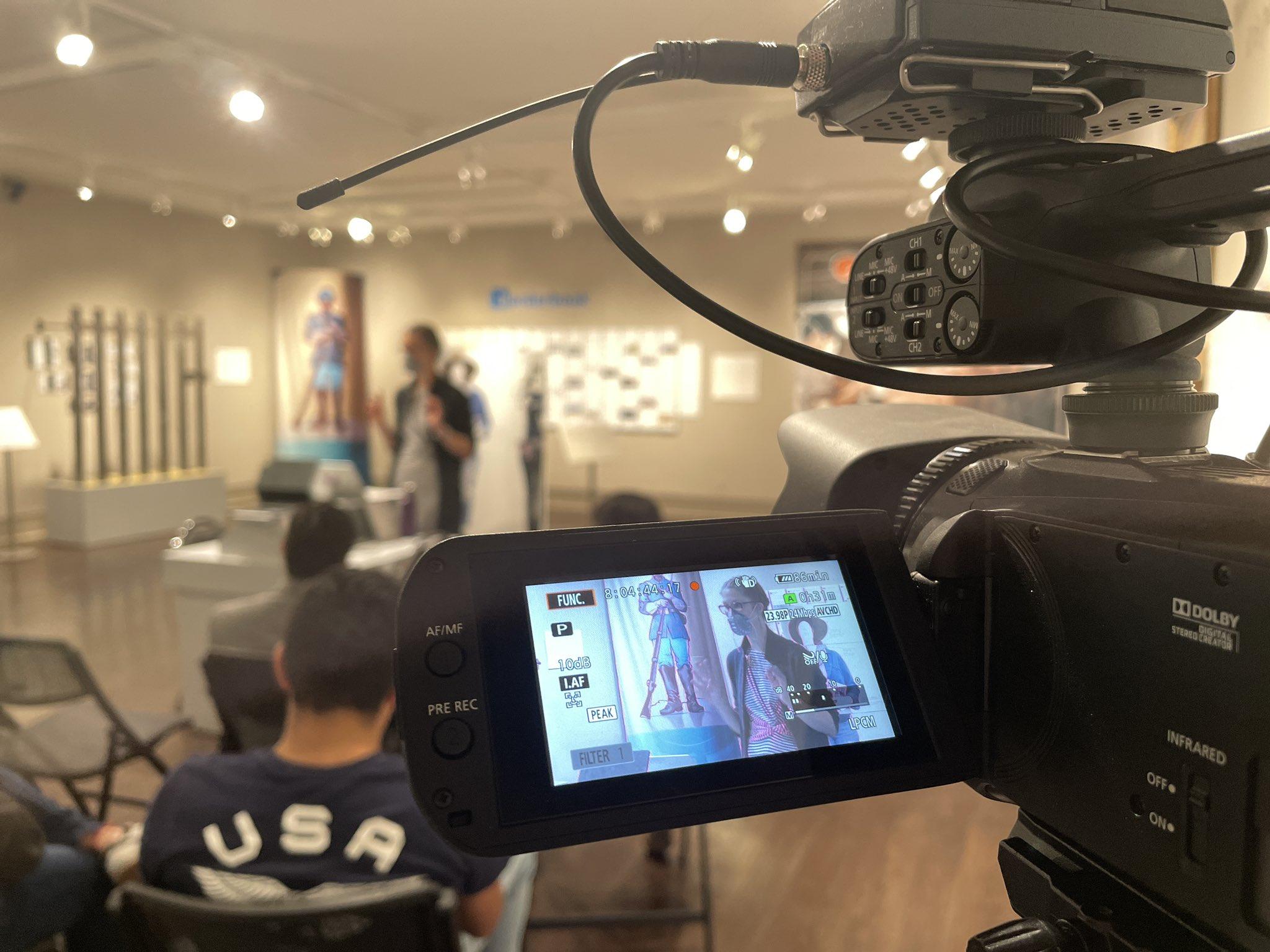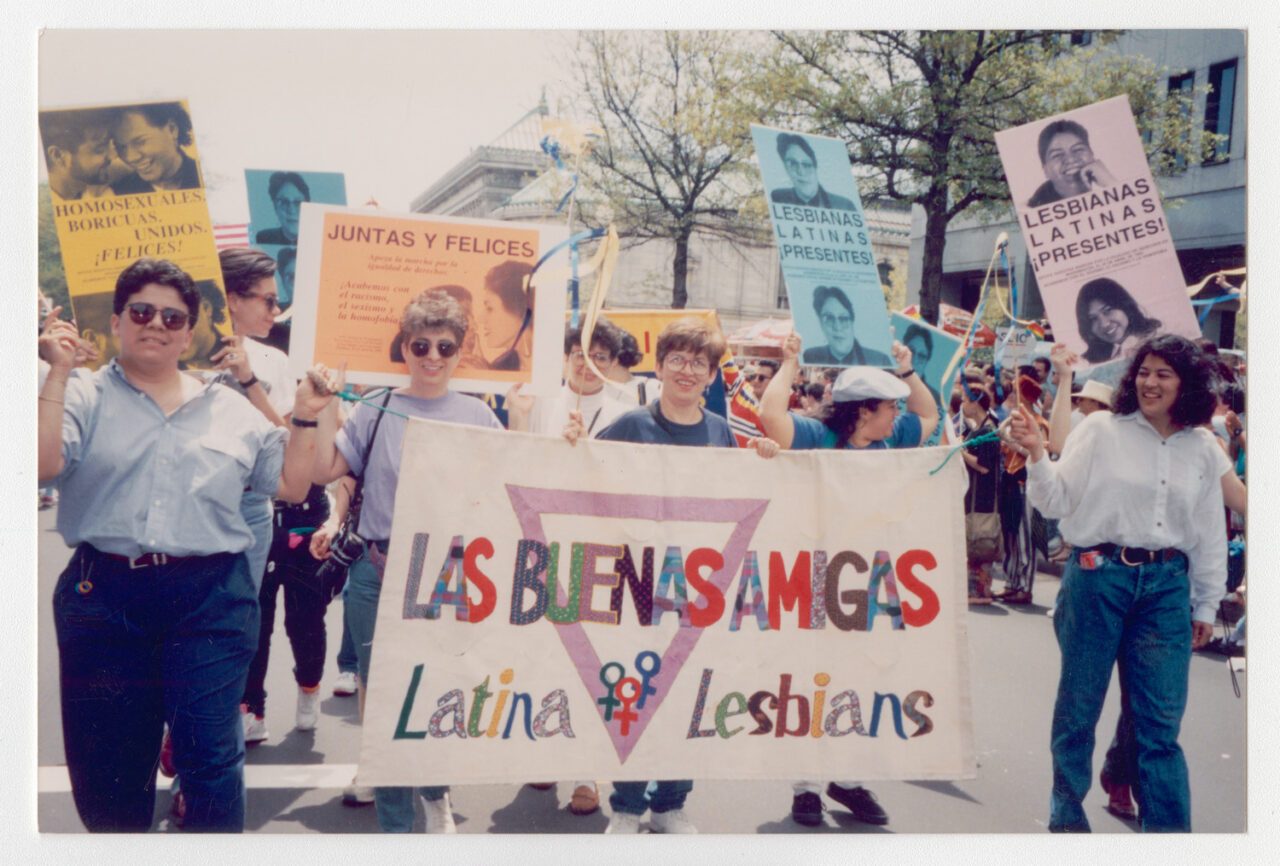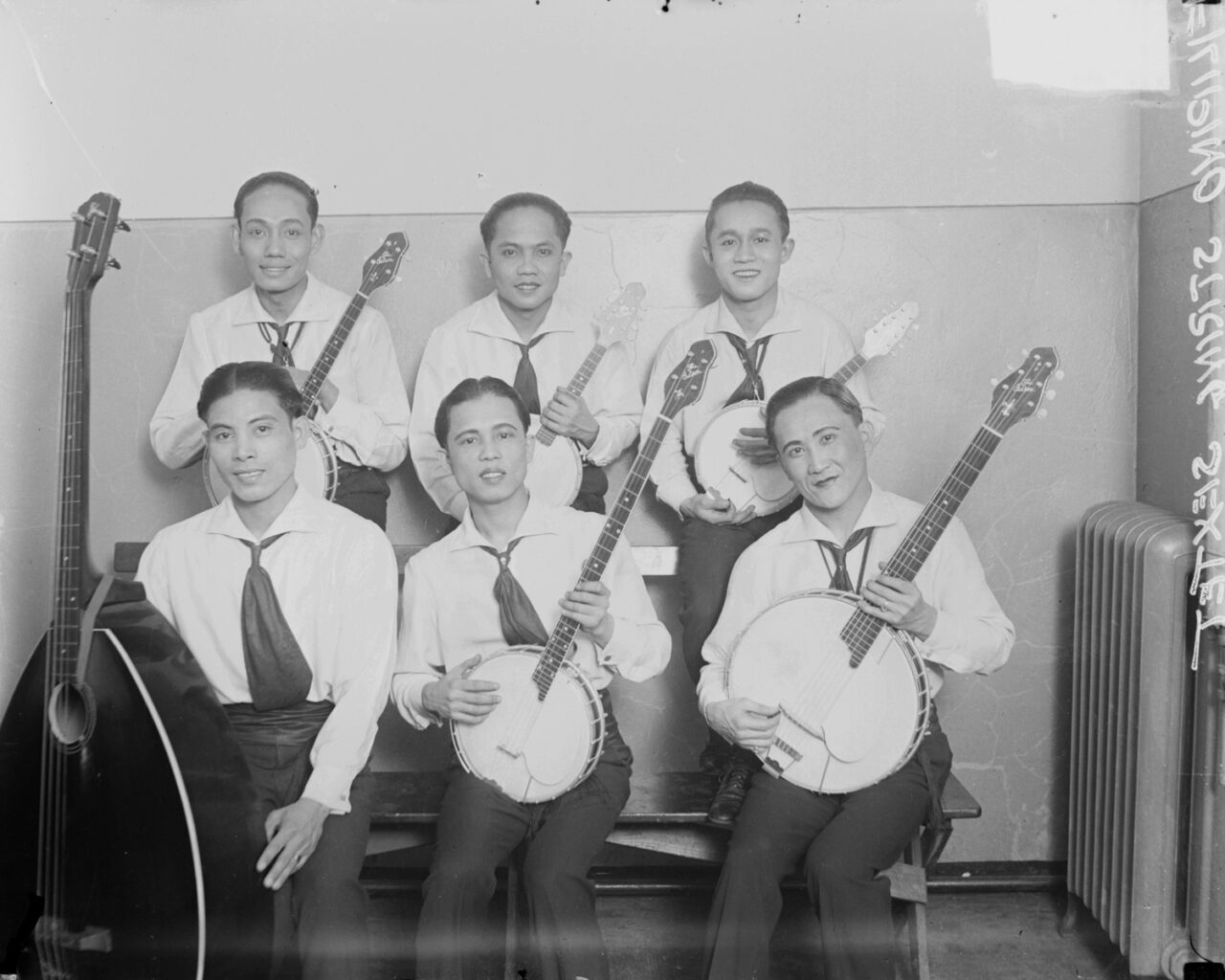In this blog post, Elena Gonzales, CHM curator of civic engagement and social justice, discusses the importance of supporting and preserving Indigenous languages and the Museum’s growing role in this work.
As anyone who speaks more than one language knows, languages contain ways of thinking. Chicagoans speak many languages of Latin American heritage other than Spanish. Indigenous languages, such as Nahuatl, Purépecha, Kanjoba’l, K’iche’, and Kichwa, are in danger of being lost.
This is because educational systems in Latin America and the United States have prioritized dominant languages such as Spanish, Portuguese, and English and further marginalized Indigenous peoples by not supporting their languages. This is a form of racism and has been going on since colonizers came to the Americas. Indigenous Chicagoans (and people in many areas all over the world) face many barriers of marginalization, displacement, erasure, and silencing.
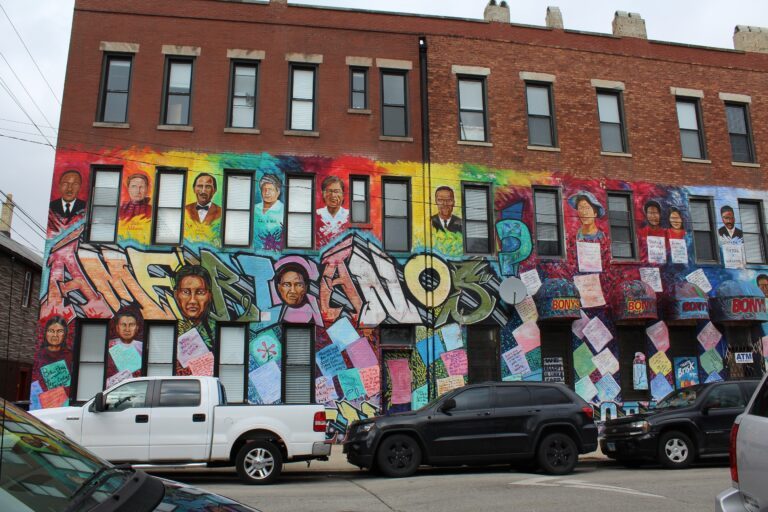
Americanos mural by Pablo Serrano, 2012. Photograph by Mario Hernandez, c. 2020.
In Chicago, Indigenous Latin Americans are working against cultural and linguistic marginalization in many ways. They go to great lengths to pass their languages down to younger generations without usual supports such as curricula in schools, native language media outlets, libraries, or museums.
For example, 18th St. Casa de Cultura in Pilsen, a hub of cultural activity including performing arts and public events, launched a school for introductory Nahuatl language lessons in 2024. The Kichwa Otavalo community in Chicago has two different community organizations, Kichwa Community of Chicago (KCC) and Comunidad Runa, and has collaborated with regional community scholars on a Kichwa dictionary. During the run up to the Aquí en Chicago exhibition, KCC worked with CHM to prepare essays (published in Chicago History magazine Winter 2024–25) in English, Spanish, and Kichwa.
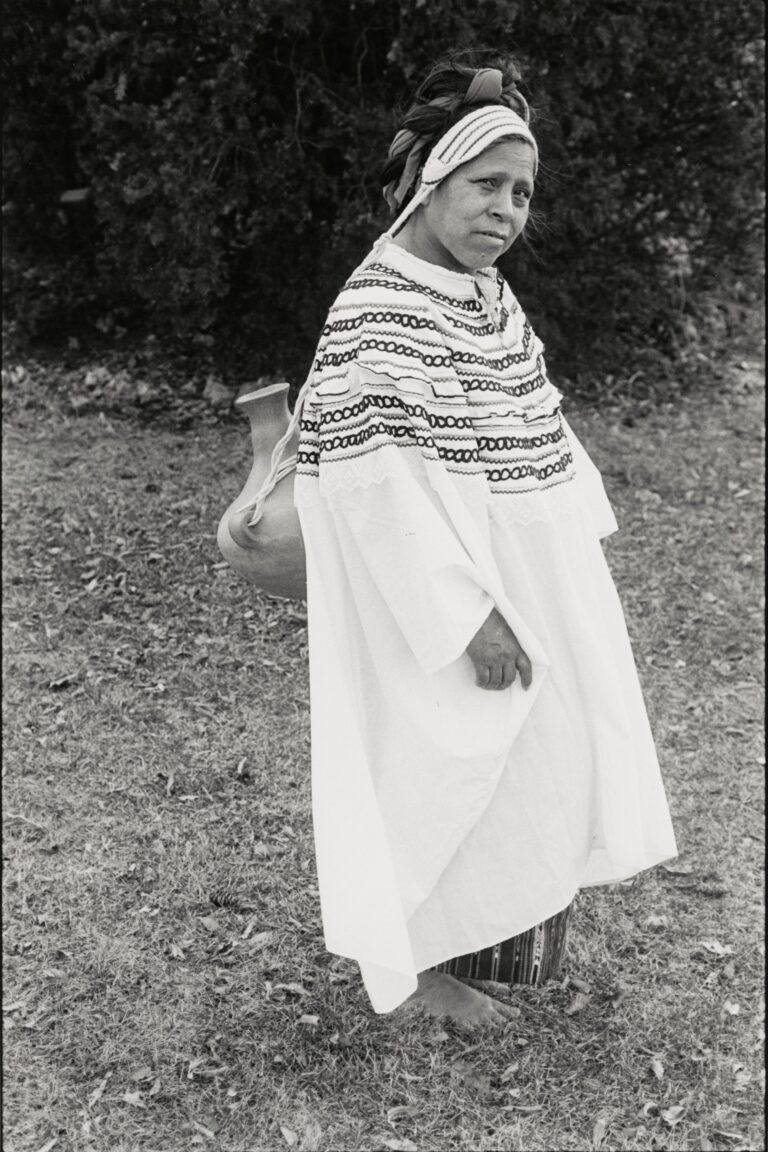
Elena Regina, an Akateko speaker, 1989. Photograph by Kay Berkson.
More than 65,000 Native Americans live in Chicago. This is one of the largest Native American populations not living on reservations. Native Americans, or American Indians, are in specific relationships with the US government based on treaties and Native sovereignty. “Indigenous,” on the other hand, is a global category that encompasses many additional people, such as Latines, who are not in sovereign relationships with the US. According to Pew Research Center, roughly 12% of Latines nationally identify as Indigenous.
It’s difficult to measure this population in Chicago, but if that estimate holds true, it would mean that, of the roughly 772,691 Latine people in Chicago, nearly 100,000 identify as Indigenous, 150% of the initial estimate of Indigenous Chicagoans. Likely a much smaller portion of these Chicagoans actually speak an Indigenous language, but that research is yet to be completed.
Indigenous people of Latin American heritage, such as Maya, Nahua, Purépecha, Kanjoba’l, K’iche’, or Kichwa Otavalo, often identify first as Indigenous and secondly with their country of heritage such as Mexico or Guatemala. Guatemaltecos speak 32 different languages with the most widely spoken being K’iche’. K’iche’ has a million speakers in Guatemala, and roughly 32,000 people only speak K’iche’. As CHM reaches out to community partners from many different Latine heritages, our collaborators encourage us to make sure that Indigenous Latine people are being represented in Aquí en Chicago.
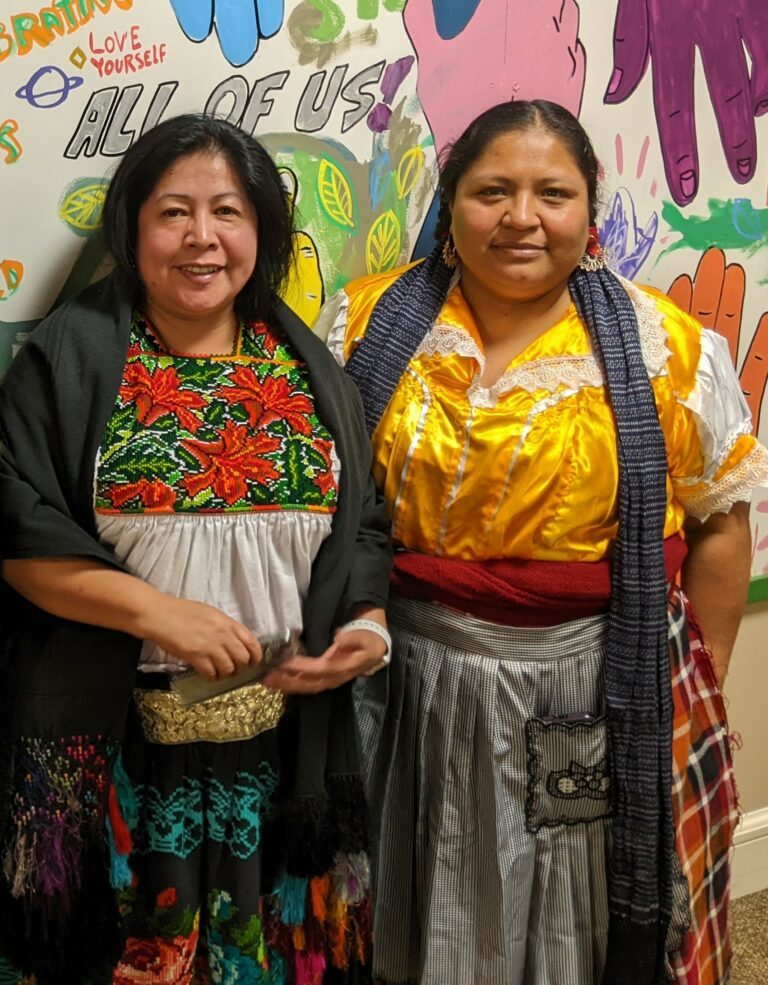
Maria de la Luz, a Purépecha speaker, and Juana S., a Zapoteco speaker, 2024. Photograph by CHM staff.
Our Indigenous Language Maintenance Project is one part of CHM’s answer to this call from within our position as an archive and repository. Language is only one form of intangible heritage—which also includes cultural practices such as dance, music, land-based practices such as re-wilding, spiritual practices, and foodways, among other modes of culture keeping. As part of Aquí en Chicago, CHM is assembling recordings from Indigenous linguistic communities in the Chicago area. We are seeking to record native speakers in as many Indigenous languages as possible and hope to create a library of short recordings of local Indigenous languages within the research collections of the Chicago History Museum.
As of this writing, the Museum has recorded speakers in Kichwa, Akateko, Quechua, Zapoteco, Purépecha, K’iche’, and Kanjoba’l. You can listen to these recordings below or on our SoundCloud. We continue to seek local native speakers of additional Indigenous languages who wish to record. We are also interested in learning more about how/if federally recognized tribes would like to be involved in this recording effort. To get involved, visit our Aquí en Chicago project page. Thank you for considering sharing your cultural heritage!
